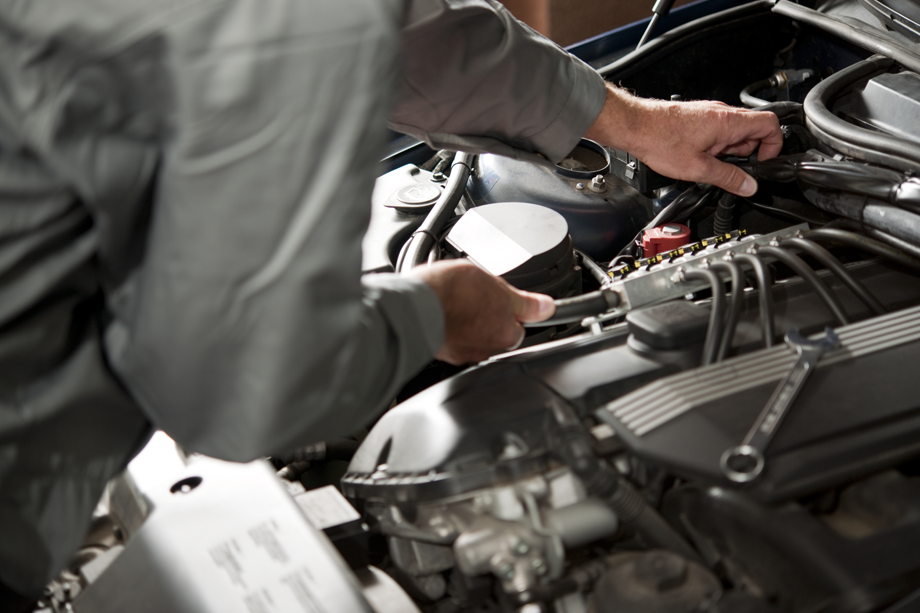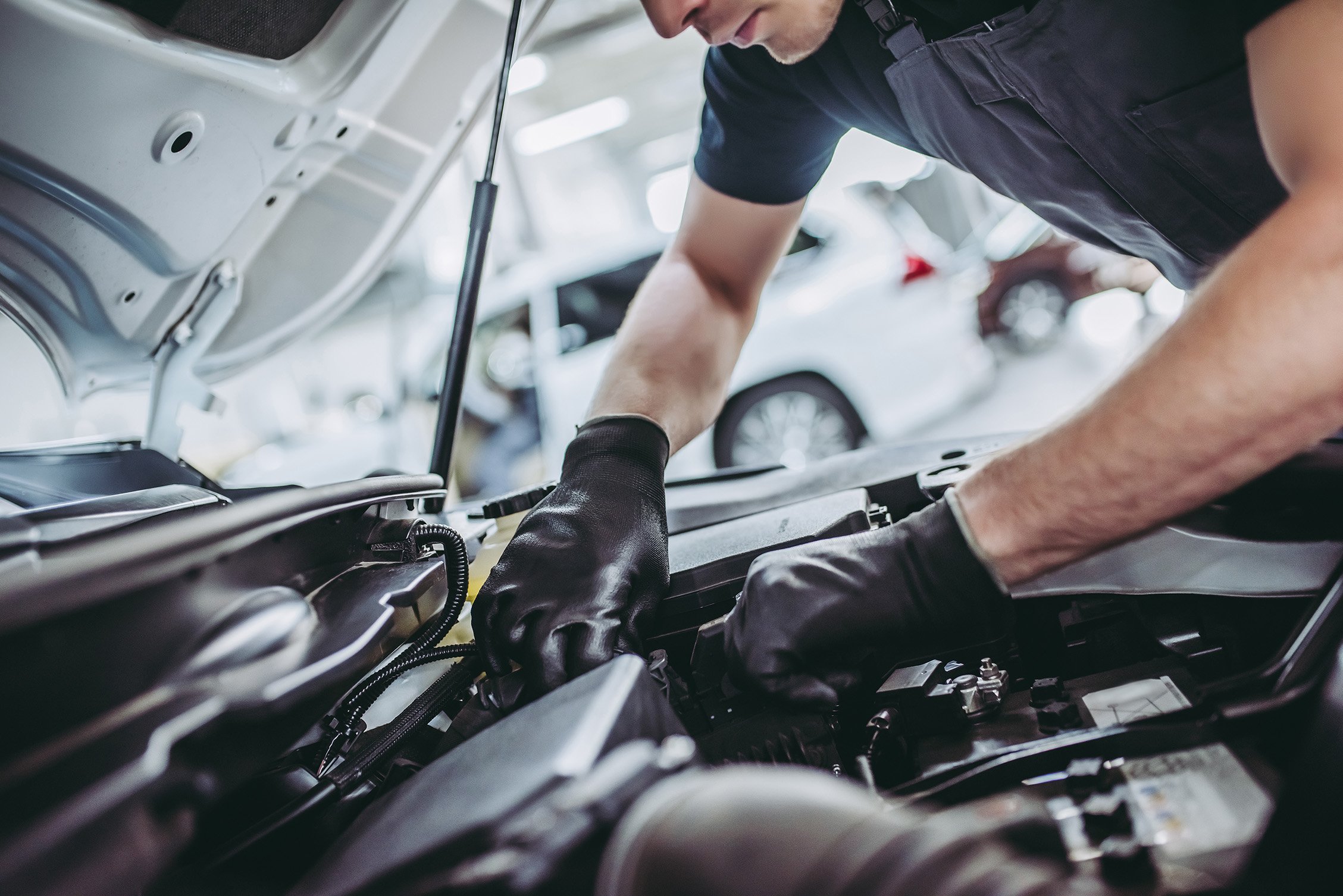All Categories
Featured
When it concerns maintaining a vehicle, comprehending the differences between routine upkeep and repair services is essential for vehicle proprietors. Both aspects are needed for the longevity and integrity of your cars and truck, however they serve distinct functions and are dealt with in a different way. By understanding when to do normal upkeep versus when to address repair work, you can keep your automobile running efficiently and stay clear of expensive shocks.
![]()
Regular Maintenance: Avoidance is Trick. Regular upkeep entails the regular, preventive treatment that your vehicle calls for to avoid future issues. It is commonly scheduled at specific intervals, such as every 3,000 or 5,000 miles, based upon your car's manual or maker referrals. Routine maintenance aids guarantee that your cars and truck continues to be in optimum problem, protecting against damage from creating major problems down the line.
Some common examples of regular upkeep include:
Oil Modifications: Regular oil changes are essential to maintain your engine oiled and running successfully. Oil helps in reducing friction in between engine components, protecting against getting too hot and unnecessary wear. Tire Upkeep: This consists of tire turnings, harmonizing, and examining tire stress. Proper tire upkeep ensures better gas efficiency, dealing with, and tire longevity. Brake Inspections: Regular look at your brakes, consisting of pads and liquid levels, can catch any type of possible concerns early, preventing brake failure and making certain safety and security. Liquid Checks and Top-Ups: Ensuring your vehicle has the best levels of coolant, transmission liquid, power steering liquid, and brake liquid is important for total vehicle health and wellness. Air Filter Substitute: Changing the air filter makes certain that your engine gets tidy air, which helps it run much more successfully and lowers engine pressure. Regular maintenance is generally arranged and doesn't entail repairing any damaged parts-- it's regarding maintaining whatever in great functioning order and avoiding future failures.
Repair Works: Dealing With the Unexpected. Repair work, in contrast, are required when something goes wrong with your car. Repairs attend to problems that impact the auto's efficiency or security and require to be dealt with asap. Unlike upkeep, which is preventative, fixings generally occur when parts have actually worn, failed, or malfunctioned.
Instances of typical repairs consist of:
Transmission Issues: If your car is having difficulty shifting experiences or equipments sliding, the transmission might require repairs or replacement. Engine Failing: If your engine begins misfiring, getting too hot, or delaying, it might require considerable repairs or substitute of parts like the timing belt, pistons, or seals. Brake Fixes: While brake pads become part of regular upkeep, if your brakes are making a grinding noise or are no more functioning effectively, brake repair work will certainly be required, such as changing the calipers or the blades. Battery Substitute: If your vehicle will not begin or the battery is no more holding a cost, you'll require a substitute battery, which is a fixing. Suspension and Steering Repair Services: Concerns with the suspension or guiding system-- such as trouble guiding or a tough time-- can be indicators that components like struts or shock absorbers need repair service. Repairs are normally much more immediate and expensive than routine upkeep. They are required when something breaks or breakdowns, which can impact the vehicle's performance and safety.
Trick Distinctions In Between Routine Upkeep and Repair Work. Timing: Routine upkeep is preventative and carried out at scheduled intervals, while repair work are reactive and take place when something fails. Expense: Upkeep is normally cheaper, as it entails monitoring and replacing smaller sized parts or liquids. Fixings, especially major ones, have a tendency to be more expensive because of the intricacy of repairing defective or busted components. Purpose: The goal of upkeep is to keep your automobile running well and stop issues. Fixings, on the other hand, are necessary to take care of concerns that have currently taken place. Regularity: Routine maintenance happens consistently at established periods (e.g., every 5,000 miles), while repair services are much less predictable, usually happening when components use or stop working out all of a sudden. Why Both are necessary. Both routine repair and maintenance are necessary for the lasting health and wellness of your lorry. Normal maintenance aids maintain your auto running smoothly and can protect against many typical issues from creating to begin with. By remaining on top of arranged services, you can resolve small problems before they transform into costly repair work.
![]()
Nonetheless, repairs are sometimes inevitable. Despite the most effective upkeep, parts wear out over time, and unforeseen concerns can emerge. When fixings are required, addressing them promptly can protect against additional damage and guarantee your automobile's safety and security and integrity.
Conclusion. In recap, comprehending the difference between routine maintenance and fixings aids you take the appropriate steps to take care of your automobile. Normal upkeep can save you money by avoiding larger issues, while repair work are needed when something goes incorrect. By staying aggressive with upkeep and resolving repair services when required, you can extend the life expectancy of your automobile and guarantee that it remains to perform at its finest for several years to come.

Regular Maintenance: Avoidance is Trick. Regular upkeep entails the regular, preventive treatment that your vehicle calls for to avoid future issues. It is commonly scheduled at specific intervals, such as every 3,000 or 5,000 miles, based upon your car's manual or maker referrals. Routine maintenance aids guarantee that your cars and truck continues to be in optimum problem, protecting against damage from creating major problems down the line.
Some common examples of regular upkeep include:
Oil Modifications: Regular oil changes are essential to maintain your engine oiled and running successfully. Oil helps in reducing friction in between engine components, protecting against getting too hot and unnecessary wear. Tire Upkeep: This consists of tire turnings, harmonizing, and examining tire stress. Proper tire upkeep ensures better gas efficiency, dealing with, and tire longevity. Brake Inspections: Regular look at your brakes, consisting of pads and liquid levels, can catch any type of possible concerns early, preventing brake failure and making certain safety and security. Liquid Checks and Top-Ups: Ensuring your vehicle has the best levels of coolant, transmission liquid, power steering liquid, and brake liquid is important for total vehicle health and wellness. Air Filter Substitute: Changing the air filter makes certain that your engine gets tidy air, which helps it run much more successfully and lowers engine pressure. Regular maintenance is generally arranged and doesn't entail repairing any damaged parts-- it's regarding maintaining whatever in great functioning order and avoiding future failures.
Repair Works: Dealing With the Unexpected. Repair work, in contrast, are required when something goes wrong with your car. Repairs attend to problems that impact the auto's efficiency or security and require to be dealt with asap. Unlike upkeep, which is preventative, fixings generally occur when parts have actually worn, failed, or malfunctioned.
Instances of typical repairs consist of:
Transmission Issues: If your car is having difficulty shifting experiences or equipments sliding, the transmission might require repairs or replacement. Engine Failing: If your engine begins misfiring, getting too hot, or delaying, it might require considerable repairs or substitute of parts like the timing belt, pistons, or seals. Brake Fixes: While brake pads become part of regular upkeep, if your brakes are making a grinding noise or are no more functioning effectively, brake repair work will certainly be required, such as changing the calipers or the blades. Battery Substitute: If your vehicle will not begin or the battery is no more holding a cost, you'll require a substitute battery, which is a fixing. Suspension and Steering Repair Services: Concerns with the suspension or guiding system-- such as trouble guiding or a tough time-- can be indicators that components like struts or shock absorbers need repair service. Repairs are normally much more immediate and expensive than routine upkeep. They are required when something breaks or breakdowns, which can impact the vehicle's performance and safety.
Trick Distinctions In Between Routine Upkeep and Repair Work. Timing: Routine upkeep is preventative and carried out at scheduled intervals, while repair work are reactive and take place when something fails. Expense: Upkeep is normally cheaper, as it entails monitoring and replacing smaller sized parts or liquids. Fixings, especially major ones, have a tendency to be more expensive because of the intricacy of repairing defective or busted components. Purpose: The goal of upkeep is to keep your automobile running well and stop issues. Fixings, on the other hand, are necessary to take care of concerns that have currently taken place. Regularity: Routine maintenance happens consistently at established periods (e.g., every 5,000 miles), while repair services are much less predictable, usually happening when components use or stop working out all of a sudden. Why Both are necessary. Both routine repair and maintenance are necessary for the lasting health and wellness of your lorry. Normal maintenance aids maintain your auto running smoothly and can protect against many typical issues from creating to begin with. By remaining on top of arranged services, you can resolve small problems before they transform into costly repair work.

Nonetheless, repairs are sometimes inevitable. Despite the most effective upkeep, parts wear out over time, and unforeseen concerns can emerge. When fixings are required, addressing them promptly can protect against additional damage and guarantee your automobile's safety and security and integrity.
Conclusion. In recap, comprehending the difference between routine maintenance and fixings aids you take the appropriate steps to take care of your automobile. Normal upkeep can save you money by avoiding larger issues, while repair work are needed when something goes incorrect. By staying aggressive with upkeep and resolving repair services when required, you can extend the life expectancy of your automobile and guarantee that it remains to perform at its finest for several years to come.
Latest Posts
Financial Security for every single Phase of Life
Published Apr 20, 25
1 min read
Teenager Independence Account: A Smart Begin to Financial Independence
Published Apr 20, 25
1 min read
Cost-Effective Car Services: Top-Quality Repairs at Affordable Rates
Published Apr 20, 25
2 min read
More
Latest Posts
Financial Security for every single Phase of Life
Published Apr 20, 25
1 min read
Teenager Independence Account: A Smart Begin to Financial Independence
Published Apr 20, 25
1 min read
Cost-Effective Car Services: Top-Quality Repairs at Affordable Rates
Published Apr 20, 25
2 min read